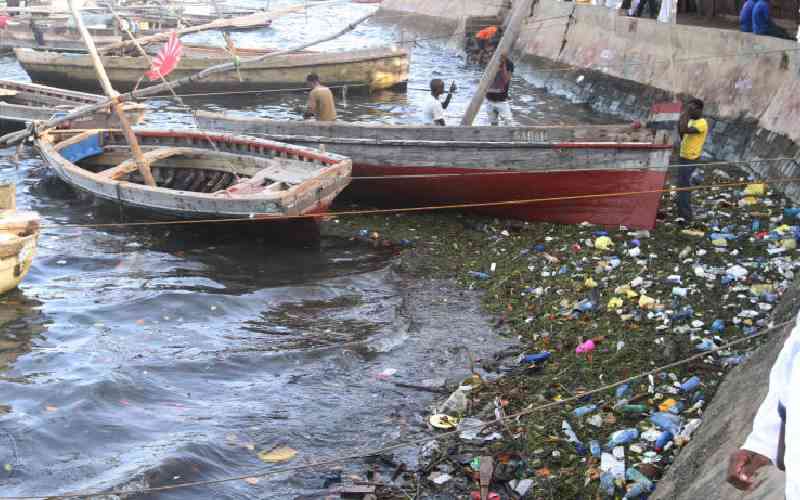×
The Standard e-Paper
Kenya’s Boldest Voice

Plastic waste floats in the Indian Ocean along Lamu Island seafront in Lamu County. Locals have been accused of disposing of plastic waste into the ocean and other water bodies causing massive pollution in the process. [File, Standard]
As Salim Mwadime walks the Pirates Beach Mombasa, a series of small waves crash against the beach.